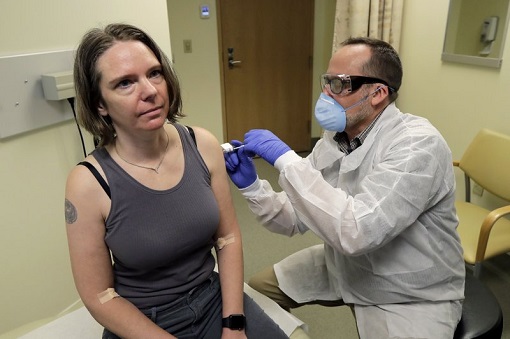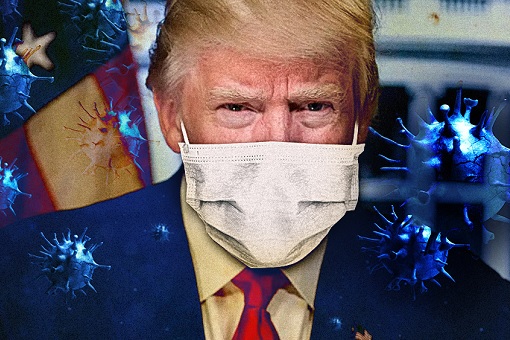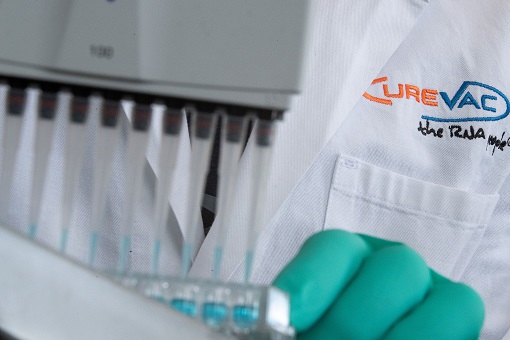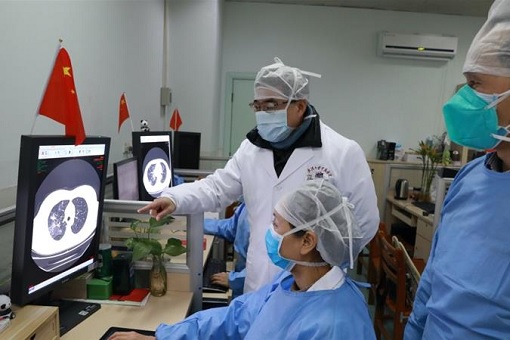The death toll from the Covid-19 is reaching 12,000 with 11,953 deaths. Confirmed cases have hit a staggering 290,248. While China still on top of the chart with 81,008 Coronavirus confirmed cases, the total number of deaths in Italy has now reached 4,032 (it reported 627 deaths on Friday alone), more than China’s 3,255. In Europe, the death toll has already surpassed 5,000.
However, according to the Johns Hopkins Coronavirus Resource Center, the number of confirmed cases in the United States is growing at a faster rate than any other country in the world. In just 1 day between Wednesday and Thursday, the number of confirmed Coronavirus cases jumped from 7,783 to 13,677 – a 76% increase within 24-hour period.
But the statistic about the number of confirmed cases is quite tricky as it largely depends on the number of Coronavirus testing performed. If a government wanted to cheat, it can always do a smaller number of tests to create a false perception that the pandemic is under control. It is no secret that the pathogen testing in the U.S. is behind other countries, hence the real number could be worse.
As the world is shutting down one after another, naturally the question being asked is when will the pandemic end so that we can get on with our lives. British Prime Minister Boris Johnson said he believes the UK can “turn the tide” against the outbreak within the next 12 weeks and the country can “send Coronavirus packing”. Obviously that was a statement.
Until a vaccine is developed, tested and proven, no one knows for sure how long the virus will live with us. The World Health Organization (WHO) is working with scientists across the globe on at least 20 different Coronavirus vaccine. The first Covid-19 vaccine trial has already begun – just 60 days after China shared the genetic sequence of the contagious virus.
Professor Yong-Zhen Zhang at the Shanghai Public Health Clinical Center in China published the virus’ genome on Jan 10 this year, unveiling its structure to the world for the first time. That decision has definitely sped up the process of researching and finding the vaccine to combat Coronavirus.

Researchers and scientists are not reinventing the wheels. Work on two previous coronaviruses, Severe Acute Respiratory Syndrome (SARS) and Middle East Respiratory Syndrome (MERS) provide a ready road map for how to create an immune response to SARS-CoV-2, the virus that causes the illness Covid-19.
Dr. Maria Van Kerkhove, WHO’s emergency program technical lead said it would be “historic” to find a vaccine and distribute it to all countries – “The acceleration of this process is truly dramatic in terms of what we’re able to do, building on work that started with SARS, that started with MERS and now is being used for COVID-19.”
However, at the same time, WHO admits that the vaccines are still a long way from being available for public use. Scientists say the time consuming process of conducting clinical tests and safety approvals to produce vaccines at an industrial scale for the mass market could take up to 18 months. Vaccines normally go through extensive animal trials to ensure they are not only effective, but safe.

But as the death toll caused by the virus climbs at lightning speed, the first person, a volunteer named Jennifer Hallar, was given an experimental vaccine (code-name mRNA-1273) in the United States this week after researchers were allowed to skip the usual rules of performing animal tests first. The Seattle mother of two said she “wanted to do something”.
Developed by the National Institutes of Health and the Massachusetts-based biotechnology firm Moderna Inc., the vaccine was part of Phase-1 trials. Moderna is one of at least 20 drug manufacturers around the world rushing against the time to develop potential Coronavirus vaccines and treatments. Haller and three other participants were the first “guinea pigs” to be vaccinated.
Three months after the virus outbreak, the U.S., Europe and China are in the race to become the first to produce a vaccine for Covid-19. The winner will be able to protect its own populations first and the patents could generate revenues, not to mention having the upper hand in dealing with the economy, which is on the verge of collapse.

Hence, President Donald Trump has told American pharmaceutical companies that he wants to see a vaccine developed in the U.S. to ensure it controls supplies. In fact, the competition was so fierce that when a German newspaper reported that Trump secretly offered US$1 billion to Tübingen-based biopharmaceutical company CureVac to secure the vaccine “only for the United States”, it triggered criticisms.
CureVac, founded in 2000, is based in the German state of Baden-Württemberg, and has other offices in Frankfurt and Boston. The rumours raised eyebrows after the German government reportedly offered financial incentives for the vaccine to stay in the country. Politicians quickly slammed the selfish Trump for trying to buy the exclusive rights to win the 2020 presidential election.
Economy Minister Peter Altmaier immediately declared that “Germany is not for sale”. Foreign Minister Heiko Maas said – “German researchers are taking a leading role in developing medication and vaccines as part of the global cooperation networks. We cannot allow a situation where others want to exclusively acquire the results of their research.”

Indeed, Dr. Mike Ryan, executive director of WHO’s emergencies program, said – “We have to have that vaccine that’s available for everybody. There has to be fair and equitable access to that vaccine for everybody.” WHO Director-General Tedros Adhanom Ghebreyesus agreed – “This vaccine should not be for the haves, it should be for those who cannot afford it too.”
Still, any new vaccine is sure to be in short supply as governments try to ensure that their own people are the first in line. For example, during the 2009 swine flu epidemic, an Australian company that succeeded in developing a single-dose vaccine was forced to satisfy demand in Australia first before allowed to export to the U.S. and elsewhere.
While 1,000 Chinese scientists are working on the vaccine, a Chinese company has offered US$133.3 million for a stake in a German firm involved in the vaccine race – BioNTech. Like Trump, Chinese President Xi Jinping also wanted China to develop the vaccine for his own people first. It would be a huge victory if China could beat the U.S. in the race to develop the vaccine.

After winning the Coronavirus war, China would definitely have the geopolitical advantage if it also owns the patent to the vaccine. Like it or not, eventually the rich countries will have the advantage in getting hold of the vaccine. Due to logistical and financial issues, poor countries may not get the vaccine until at a later stage.
FINANCE TWITTER



No comments:
Post a Comment
Note: Only a member of this blog may post a comment.